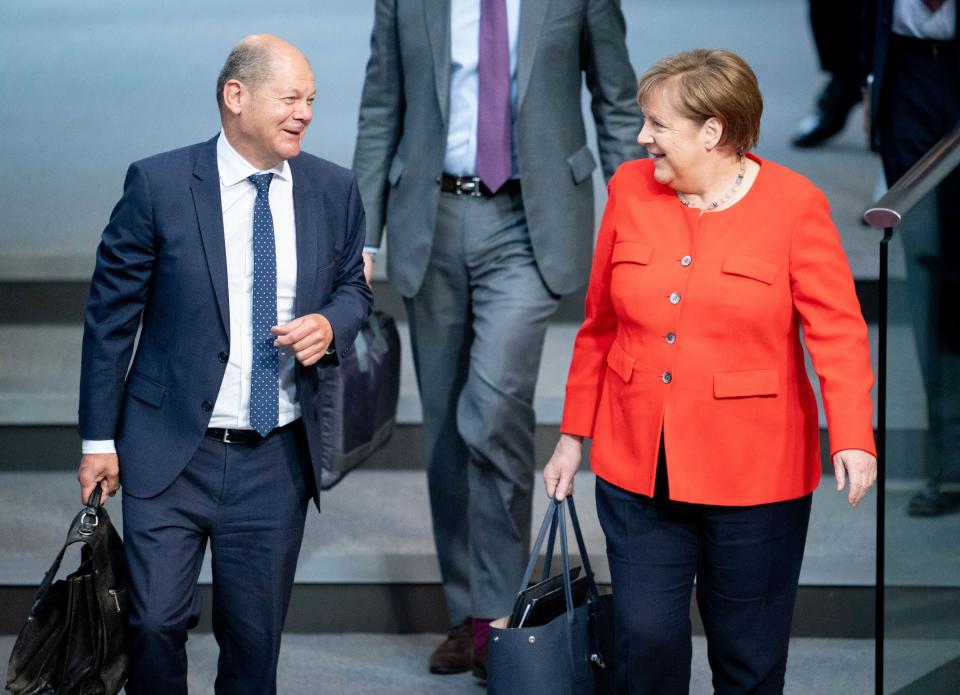CashNews.co

Germany’s finance minister and vice-chancellor Olaf Scholz will run as the Social Democratic Party (SPD) candidate to succeed Angela Merkel as chancellor in the next federal elections, due to take place by October 2021.
The Social Democrats are the junior partners in the federal coalition government with Merkel’s Christian Democrats (CDU) and their sister party in Bavaria, the Christian Social Union.
Scholz, aged 62, confirmed his nomination on Twitter on Monday, saying: “I am looking forward to a great, fair and successful election campaign in a strong team.”
He said that he had received unanimous approval on his nomination after SPD co-chairs Saskia Esken and Norbert Walter-Borjans had put him forward.
Scholz, formerly mayor of Hamburg as well as labour minister in Merkel’s first CDU-SPD coalition from 2007 to 2009, became vice-chancellor and finance minister in 2018. Known for his attention to detail and love of frugality, he has proved to be a strong ally for Merkel during the coronavirus crisis, loosening the country’s strict purse strings to unveil massive stimulus packages.
The coronavirus crisis pushed Germany to suspend its constitutional debt brake law, abandoning the so-called “black zero” (Schwarze Null) balanced budget. Scholz has pushed through billions of euros in financial aid and stimulus since March, some of which is financed by new debt.
In March, the government announced it would make €20bn (£18bn, $23.5bn) available to companies in the form of tax relief and “unlimited credit” from loans through the KfW state development bank.
Scholz described the measures as a “bazooka” for the economy, adding: “We are not feeling our way around, we are putting all our weapons on the table.”
He noted that the government was well-positioned to finance the stimulus thanks to years of savings.
In June, the government announced a €130bn package to boost economic recovery in the wake of lockdown restrictions lifting.
READ MORE: Coronavirus: Berlin unveils €130bn package to reboot German economy
“It is not only the size of the package which is remarkable but also the fact that the German government has made a complete U-turn in its approach to fiscal policy,” ING chief eurozone economist Carsten Brzeski said in June.
“From austerity champion to big spender — a few months ago, concluding with such a comment on German fiscal policy would have been almost unthinkable.”
Despite Scholz’s popularity, the party is lagging far behind its coalition partners in polls. This weekend’s polls put the SPD at 14% and 16%, faring much worse than Merkel’s CDU at around 38%, and coming in in third place after the the Green Party, which is polling between 18% and 21%, depending on the poll.
It is still not decided who will run as the chancellor candidate (Spitzenkandidat) from Merkel’s party. The popularity of Bavarian state premier Markus Söder from the CSU has soared during the corona crisis, provoking broad speculation that he could run for the top seat in the country next year. However, Söder so far has maintained that he is committed to heading up the state of Bavaria, and will not run for chancellor.
Whether or not he sticks to this line remains to be seen — the conservative candidate is unlikely to be announced until early next year.

